Happy Sunday and a belated happy Independence Day. Hopefully the fragrance of gunpowder and the grill is still wafting around!
In addition to this week’s main Dispatch Faith essay, we’re recommending some July Fourth-themed pieces that touch on religion, but I also wanted to point you toward a new series of essays we launched Friday as we spend the next year building toward America’s 250th birthday. Kicking it all off is—who else?—Jonah Goldberg. His argument—that, despite some popular notions, the American Revolution was really a big deal to the rest of the world back in the day—isn’t explicitly religious, it’s very much worth your time, as we think each week’s essay in the series will be.
For today’s Dispatch Faith essay, Rabbi David Wolpe writes on how the experience of American Jews has changed radically since October 7, 2023, and he implores American Jews to lean into their Jewish identity. here
David Wolpe: Judaism at the Crossroads, Again
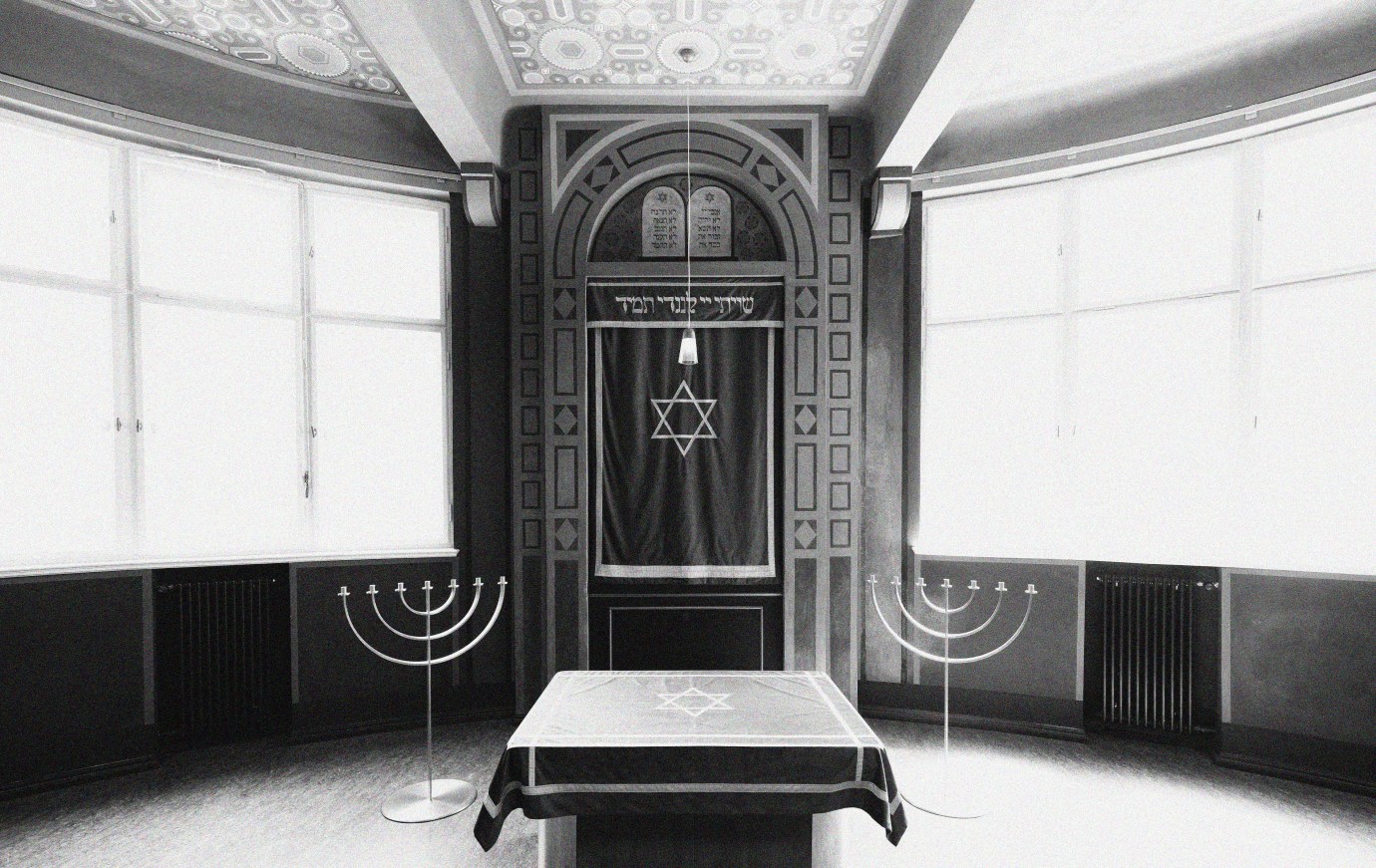
Thirty years ago I was scheduled to co-teach a class of rabbis together with Rabbi Lawrence Kushner but had not settled on a title for the session as of the day before. So I called Rabbi Kushner. “Don’t worry,” he said. “I have a name that always works: Judaism at the crossroads!”
When I tell this to Jewish audiences, they laugh with the familiarity of crisis fatigue. We are always at a crossroads, always standing at the edge of a chasm. Yet October 7, 2023, and the recent war with Iran are different from the challenges of the past. They present simultaneous and intertwining crises to both Israel and world Jewry. For American Jews specifically, they have shattered the sense of security we have enjoyed in the United States since World War II.
My parents both grew up as American Jews whose parents were also American Jews. For my family the Holocaust was not nearly as immediate as it was for those who grew up with survivors, either as parents or grandparents.
Yet the specter of antisemitism was pervasive. I like to joke—though it is not that much of a joke—that my father, who was a rabbi in Philadelphia, had a comprehensive knowledge of the attitude toward Jews held by every human being on Earth. Rarely would we watch a sporting event or read about someone in the paper when my father would not comment on their posture toward Jews or Israel. If, when watching a baseball game, I said, “Wow, Dad—that was a great catch!” I might well get the response,“Ah, he hates the Jews.” It was an astonishing tribal tour de force.
This is all to say that for most of my life, antisemitism was not an immediate concern. Growing up in Philadelphia, I can only remember one incident at a chess tournament when someone made a derogatory remark about my being Jewish. It was not until I went abroad, to Scotland, that I encountered antisemitism, and even there it was mild and didn’t dissuade me from the belief that it would not be a major concern of life. I recall telling my father that while antisemitism was a major concern of his rabbinate, it probably wouldn’t be of mine. He looked at me indulgently, and told me he hoped I was right, but not to count on it.
In some sense I was proved correct. For the duration of my tenure as a pulpit rabbi, antisemitism was a periodic visitor to the news and I certainly spoke about it from time to time, but it was not a primary preoccupation. Even the presence of a large Persian population in the congregation, who had fled Iran as one of the regimes most hostile to Jews took power in 1979 and 1980, did not make antisemitism a front burner issue in daily life.
It was nonetheless true that speaking about antisemitism was always a “popular” undertaking. I couldn’t get people too excited about keeping kosher or the Sabbath, but if I spoke about Jew hatred, I had the congregation rapt with attention. This is not only a product of Jewish history and the particular experience of my congregation, but a built-in bias of human beings. Attention to the negative is a survival mechanism: Miss a fruit tree and you might be hungry; miss a tiger and you’re dead. The specter of history was never banished. We all knew that there was widespread antisemitism in the world, so our warning systems were kept in reasonable repair.
I retired from the pulpit and took a position as a visiting scholar for a year at Harvard Divinity School. Then came October 7.
It is hard to overstate the tidal wave of shifting consciousness that moment occasioned in the Jewish community. We had warnings, of course: The fall of the towers in 2001 saw an organized Jihadist group, al-Qaeda, whose hostility was trained on Israel and on Jews. The shooting at the Tree of Life synagogue in Pittsburgh in 2018, the murder at a shul in Poway, California, the following year, and the controversy over the women’s march in 2018 because of the leadership of figures like Tamika Mallory and Carmen Perez who had ties to Louis Farrakhan and antisemitic ideologies, were harbingers of what was to come. The clouds had long been gathering.
For many years Jews—and Jewish organizations—pursued the strategy of homogenization in the face of historical hostility. We would be echt-Americans. Jewish names are seen on virtually every charitable plaque in hospitals, museums, and opera and playhouses in cities with a substantial Jewish population. In years past, a majority of Jewish philanthropic dollars went to non-Jewish philanthropies and institutions. All this was an attempt to prove, in the wry Yiddish phrase, “Jews are like everyone else, only more so.”
Now suddenly Jews not only find themselves under fire at institutions they had helped build—charities, universities, foundations—but people with whom they shared a worldview have ostracized them. And secular Jews, philanthropists who had neglected Jewish causes, and Jews who had been on the fringes of Jewish life were galvanized. One philanthropist who had no interest previously in Jewish learning started a national movement to read Torah. Another staged a “war games” conference to envision the Jewish future—and rabbis all over the country have told me their conversion and intro classes are suddenly swelled with people newly interested in Judaism. “October 8 Jews” became and remains a phenomenon in the Jewish community.
The progressive attack on Israel and Jews is the unraveling of a grand bargain that so many Jews had made with America: If they were sufficiently universalist in their views—if they supported other groups and ideologies—then they would be an inextricable weave in the social fabric. October 7 and its aftermath proved that this was an illusion.
The sub rosa religion of progressive Jews before October 7 was epitomized in the ubiquitous Jewish phrase tikkun olam—the concept of repairing an imperfect world. It has a long history. In Ecclesiastes 1:15, the world is called a twisted thing that cannot be made straight or repaired (the Hebrew is litkon, from the same root as tikkun). Already we have a sense of the despair that the term will later be intended to allay, presaging Immanuel Kant’s famous declaration that from the crooked timber of humanity, nothing straight can be made.
Kant might aptly have commented on the crooked timber of tikkun itself. The growth of tikkun olam into a concept started with the Talmud and expanded in the Kabbalah. The Talmud discusses the concept of “for the sake of repairing the world” in the tractate concerning laws of divorce (Mishna Gittin 4:2), and it is tied as well to other social legislation. In the Kabbalah, particularly in the hands of the mystic R. Isaac Luria, tikkun becomes repair for the catastrophe of shevirat hakelim, the breaking of the vessels, that occurred at the outset of creation. Certain meditations, prayers, and observance of the mitzvot (commandments) will bring repair, not only in the material world but also in God’s own self—a daring idea that has made Kabbalah both attractive and anathematized. Tikkun thus developed from a social concept to a supernatural one, and there it rested until the modern age when it returned to social dynamics with a vengeance. To quote the French poet Charles Péguy, “everything begins in mysticism and ends in politics.”
Suddenly tikkun olam was saving the whales and raising the minimum wage. The entirety of people’s allegiance to Judaism was expressed in tikkun olam, a political cause dear to the left that became synonymous with many progressives’ idea of Judaism itself. I once asked a noted progressive rabbi how to reconcile the fact that the most learned Jews in the U.S., generally in the Orthodox community, voted for the right. I didn’t get much of an answer.
After October 7, Jews awoke to a triple threat: antisemitism from the far left, the far right, and jihadism. Although the three are different in some ways, they share a common goal.
As American Jewish historian Jonathan Sarna has put it, hatred of Jews is a “scourge and a surge.” Antisemitism (or better, Jew hatred) has always the double effect—of driving some Jews away from Judaism and awakening others. Relationships that seemed unshakable, like the Jewish relation to elite universities, are being rethought. Families are choosing different universities for their children—or children for themselves—because of what happened on elite campuses after October 7.
What I saw at Harvard—student groups blaming Israel for the attack, protesters’ disruption on campus replete with antisemitic images—was not only a failure of the university system and an ideological betrayal; it was an assault on the values of the West represented by Judaism and by Israel. The endless “colonialist oppression’”rhetoric, apart from being ill-suited to a people who had always dwelt in and returned to their land, is a broadside against the West. Far from being a legitimate and understandable exploration of the underside of Western society and history, it was a repudiation of the achievements and glories and worthiness of that history, and in this case, paradoxically, choosing one of the traditional avatars and victims of Western civilization, the Jew.
For those of us watching it ripple through our community, it was also a cry for more and better Jewish leadership, leadership that does not see promoting Jewish community interests as a narrow enterprise. Before October 7, tikkun olam rarely implied repairing the Jewish community. Now suddenly, Jews are waking up to the painful reality that while we imagined ourselves allies to others, they did not consider themselves allies to us. Increasingly disillusioned Jews came to understand “universal love” as a sort of dodge: to love everyone entails no specific obligation to someone. Human beings love in concentric circles, beginning with their family, their friends, their city, and so forth. To include one’s people in that circle is not narrow, or Jewish-specific—it is human.
The world saw major philanthropists withdraw funds from institutions that had been hostile to Israel and to Jews, but we are also seeing many of those same philanthropists newly contributing to the Jewish community. They are looking to leaders who embody the beautiful words of the poet Heinrich Heine, that freedom speaks with a Hebrew accent. Particularism, that is, focusing on the needs of one’s own community, is not a cage—it is a backbone. In the past several years, with the tumult on campus and in politics, Jews seek leaders who can speak of Jewish values without mortgaging their souls to one or another political party.
Particularism does not mean parochialism. The greatest thinkers of the Jewish tradition have engaged with the languages and ideas of the surrounding culture. Philo contended with Plato, the rabbis with Roman culture, Maimonides with Greek and Arabic culture, Moses Mendelssohn with the Enlightenment, to name just a few. Particularism can no longer be a dirty word. In a country where the Liberty Bell contains a quote from Leviticus and the Statue of Liberty the words of a Jewish poet (Emma Lazarus), the Jewish community needs to recall the image of the writer Cynthia Ozick: If you blow in the wide end of the shofar you get nothing, but if you blow in the narrow end you get a sound everyone can hear.
I often speak for Israeli universities, particularly the Technion (the Israel Institute of Technology), and try to persuade people who are used to contributing here that giving to universities in Israel supports an undertaking that has long roots and a certain future. I tell them the story of Saul Bellow, who wrote of an encounter he had with the Israeli Nobel prize winning writer Shai Agnon. The two Nobel prize winners met in Jerusalem, and Agnon asked Bellow if his books were translated into Hebrew. Bellow said they were, and Agnon answered, “Ah, thank God. Then you’re safe.” Akkadian and Latin may not ensure your immortality, but Hebrew will.
October 7 taught the Jewish community anew not the lesson of abandoning the world, but the lesson of addressing the world from within Judaism. The tradition continues to champion the value of the individual, the necessity of community, and the subordinating of technology to the human. Jewish leaders must stand against the anti-Israel and anti-Jewish forces that grow more strident each day, partly because Israel stands for Western values under larger assault.
But opposition is not sufficient to sustain a tradition. Alongside the fight against hatred, skilled voices must address the world in terms authentic to the tradition. The harmony strategy has failed; however praiseworthy, Jews are not part of America because they donate to larger philanthropic enterprises. We must adopt the symphony strategy, and play our own instrument in the larger orchestra. Jews best serve America and themselves when they are learned, proud, and practicing Jews.
Jack Miller and Wilfred M. McClay: Is Antisemitism Un-American?
To continue a theme, for our website on Friday, Jack Miller and Wilfred M. McClay argued that Judaism has always been entwined with the American project:
And that is why it is important to insist that antisemitism is un-American. It is not enough to just say that such criminal acts violate our laws. They offend our fundamental beliefs about the freedom and dignity of the individual person, ideals that America pioneered at its founding and that the nations of Europe and most of the civilized world claim to honor.
For Americans, nothing expresses the distinctively American view of the matter better than George Washington’s letter to the Hebrew congregation at Newport, Rhode Island, in 1790. It’s a beautiful letter and one that should make every American proud to read.
Make sure to read the whole thing, including the key excerpt of the letter from George Washington alluded to above.
Kevin D. Williamson: A Declaration Against Idolatry
On Independence Day, we published a piece by Kevin D. Williamson arguing that we ought to remember and reflect on the meaning of a perhaps too-often forgotten phrase from the Declaration of Independence: “endowed by their Creator” :
John Adams famously observed that our Constitution was fit only for a “moral and religious people,” and he was not being redundant—the underlying intellectual architecture is not only moral but rooted in a specifically religious idea about the relationship of man to “the God that made him.” The theological and specifically Protestant character of the American proposition need not exclude modern Americans (such as myself) who do not hew to the Reformation tradition any more than it excluded the religiously unorthodox Thomas Jefferson, who wrote the very words here at issue. But one cannot honor the spirit of the document without taking seriously what it actually says and what it actually means.
And what it means—if we take it seriously—is no less revolutionary today than it was in 1776. If it is true that we are endowed by our Creator with the capacity for citizenship Jefferson described, then we are overdue for an era of penance and reconciliation in our national community life. This will be painful for Americans, because in our political life we have—there is no painless way to say it—a great deal of which to be ashamed.
More Sunday Reads
- The United States has a long and storied history of religious freedom dating back to the Founding Fathers, even if much of that has been forgotten. In ReligionUnplugged, Tom Verde observes that Thomas Jefferson and John Adams owned, studied, and respected the Quran, a reminder of that American religious toleration. “At a time when the Trump administration has renewed a travel ban on various Muslim majority countries in Africa and the Middle East, Adams’ Quran is but one indication that our nation’s founders regarded Islam, as well as other, non-Western, non-Christian faiths, as worthy of respect and protection under the law. Additionally, as Massachusetts Supreme Court Chief Justice Theophilus Parsons, one of the drafters of the state’s constitution, put it in 1810, those freedoms included the right of ‘every man, whether Protestant or Catholick, Jew, Mahomaten [Muslim] or Pagan’ to take part in the political process.”
- Social media spats between Christians, especially pastors, are both too common and too nasty. For Christianity Today, Chris Butler argues that, in today’s fractured church, Christians should exercise restraint and conduct public conversations “rooted in love for Christ’s body, marked by spiritual discernment, and carried out with humility and a clear sense of responsibility before God. One of the biggest problems I’ve seen with online disputes is that they become too fleshly. Even when one side might clearly be in the right, social media skirmishes have a way of bringing out a type of nastiness, often with a dash of pride, defensiveness, and anger. People don’t want to be seen as ‘the losers’ in public or quickly apologize for what they could have said or done differently. And before long, godly character has taken a back seat as followers take sides, assign motives, and pick up offenses on behalf of someone they’ve never even met.”
Religion in an Image
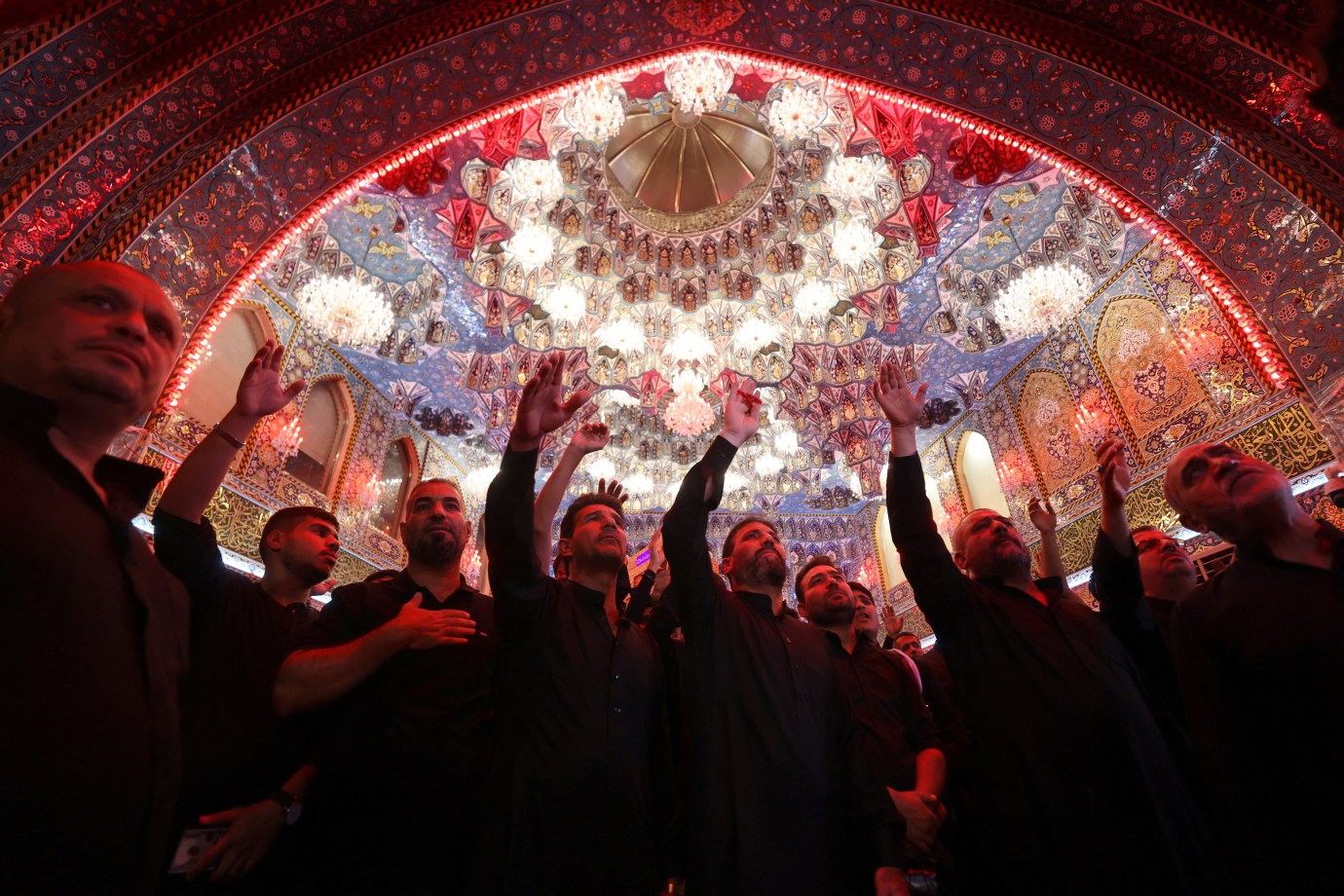
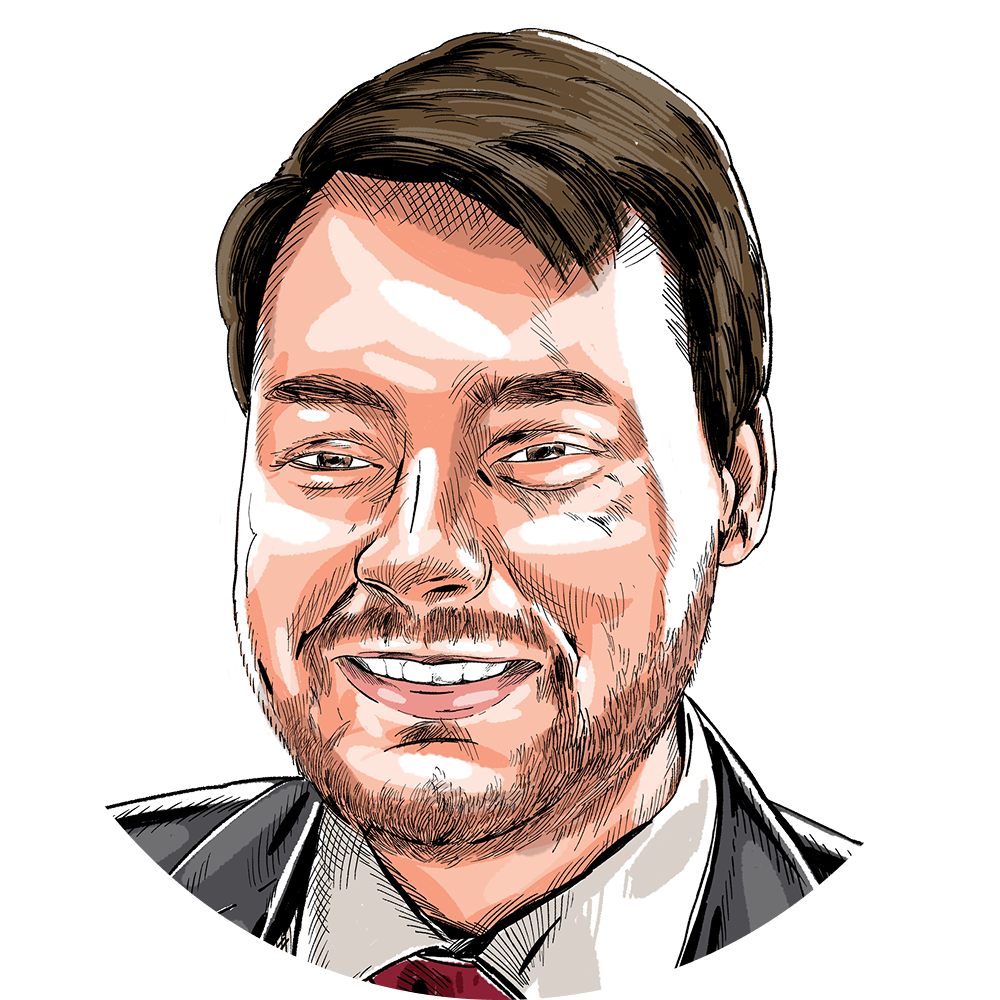

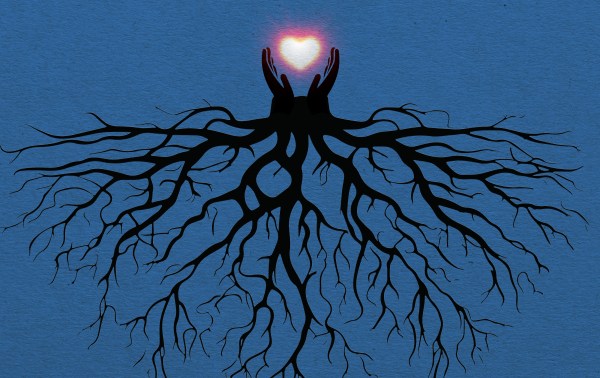

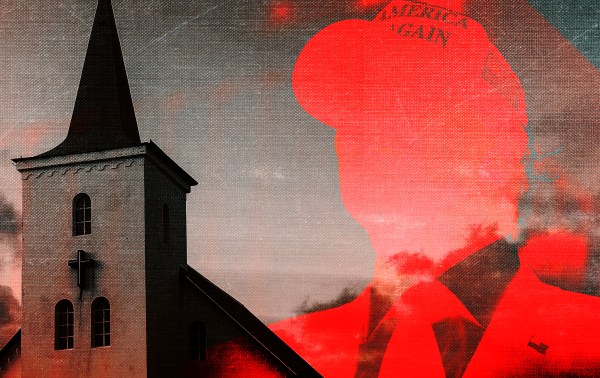



Please note that we at The Dispatch hold ourselves, our work, and our commenters to a higher standard than other places on the internet. We welcome comments that foster genuine debate or discussion—including comments critical of us or our work—but responses that include ad hominem attacks on fellow Dispatch members or are intended to stoke fear and anger may be moderated.
With your membership, you only have the ability to comment on The Morning Dispatch articles. Consider upgrading to join the conversation everywhere.